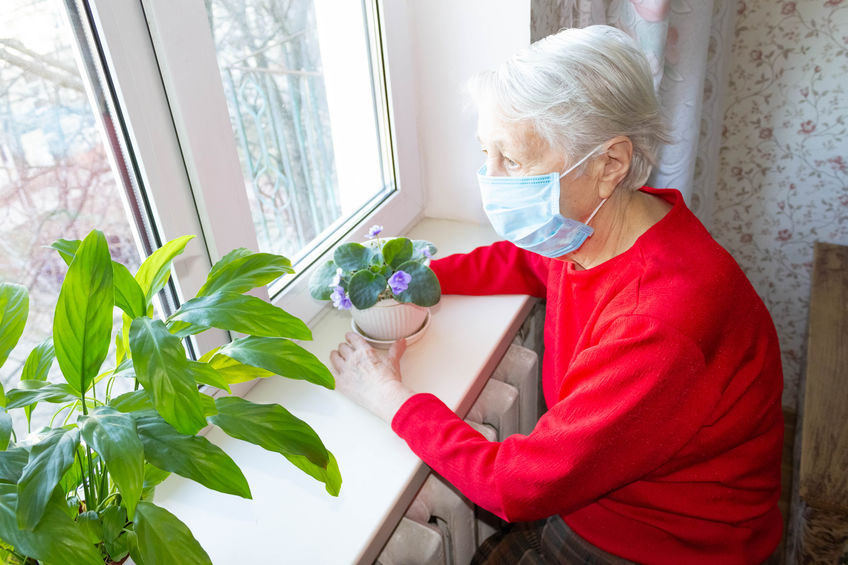K•S Blog
Call Us Today
(763) 746-7800
Get a Free Consultation
Contact
State and Federal Recommendations for Families of Nursing Home Residents
By Craig Baillie / April 6, 2020

The coronavirus (COVID-19) pandemic brings worries to families who have loved ones residing in a nursing home. That loved one is likely elderly, and likely has underlying medical conditions, making them especially vulnerable to infection, and less able to recover from such an infection.
On top of that, these long-term care facilities have changed the rules about having family members come visit, leaving the family in the dark about how their loved one is doing, and if their loved one is being properly cared for.
The reason the nursing home will no longer allow you to visit your loved one is because the nursing home must abide by both federal rules and state rules. The federal government put out a series of rules, called “guidances” that direct the nursing home on what the nursing home should do to try to protect their residents from getting infected with the COVID-19 virus.
Federal Guidance Issued April 2
The latest guidance for nursing homes from the federal government was issued April 2, 2020 (COVID-19 Long-Term Care Facility Guidance). In that paper, the government directed nursing homes to strictly follow rules related to infection control, especially hand washing. Every person who enters a nursing home must be screened for symptoms of COVID-19 and have their temperature checked. And, every resident of the nursing home must have their temperature taken daily, as well as being evaluated daily for any COVID-19 symptoms.
In addition, staff of nursing homes must wear face masks while they are in the facility, and they must use more extensive protective gear if they care for a resident suspected of, or having, COVID-19. If a resident needs to leave the facility temporarily (such as for kidney dialysis) that resident must wear a mask for the entire time they are outside of their room.
All nursing home residents are being asked to cover their nose and mouth with facial tissues, or wear a cloth mask, while nursing home staff are in their room.
The government directed nursing home to try to consistently assign the same staff to care for the same residents regularly. This will reduce the number of people who interact with each resident, and potentially reduce their risk of exposure to COVID-19. Additionally, nursing homes have been asked to physically separate residents who have COVID-19 into a different area of the nursing home from those who are not infected.
Since March 13, nursing homes have needed to follow the federal guidance restricting entrance to nursing homes. Family members are only allowed inside under compassionate care circumstances such as end of life. But, those family members will not be allowed to enter even under compassionate care circumstances if they have a fever or any symptoms that could be COVID-19. Family members who are allowed to enter must wear a mask and wash their hands, and avoid physical contact (shaking hands or hugging) with other persons inside the facility.
Nursing home residents must remain socially distanced from other residents, which generally will mean that they will be restricted to their own room, to help keep them safe from exposure to COVID-19.
State Guidance Issued March 31
On March 31, 2020, the Minnesota Department of Health (“MDH”) issued a guidance recognizing how important it is for families to remain in contact with their loved one who resides in a nursing home. MDH suggested that family members try to continue this communication by telephone, email, text messages, video chat, or social media.
MDH noted that under Minnesota state law (Minn. Stat. § 144.6502), nursing home residents also have the right to place a camera for electronic monitoring inside their room. If a family member needs to help set this up, they will be allowed to enter the nursing home if they pass screening requirements, access only their loved one’s room, and comply with Minnesota electronic monitoring law, which includes obtaining written consent from the resident (and roommate, if there is one) as well as notifying the facility staff. This is an additional way that family members can check on a loved one’s well-being.
MDH’s Seven Recommendations:
MDH issued seven recommendations for families of nursing home residents. Those recommendations are summarized below:
- Restrict all visitors and non-essential health care personnel, except for special circumstances unique to the provider population.
- In lieu of visits, facilities should consider utilizing remote means of communication.
- Families are encouraged NOT to take their loved ones out of the building for any non-essential outings.
- CDC guidance for health care workers in facilities also applies to other health care workers, such as hospice workers, EMS personnel, or dialysis technicians, who provide care to people receiving services.
- Facilities should review and revise how they interact with third-party companies to minimize risk of exposure.
- People still have the right to access their Ombudsman program.
- Advise persons who enter the facility to monitor for signs and symptoms of respiratory infection for at least 14 days after exiting the facility.
Contact Information
If you or a loved one living in a nursing home or assisted living facility suffers from COVID-19, you can notify an ombudsman who can assist you bringing your concerns to the facility. Should you believe the infection was a result of neglect, you can contact the State of Minnesota to notify them, so it may conduct an investigation. If you wish to contact an attorney, the Kosieradzki Smith Law Firm’s attorneys handle nursing home abuse and neglect cases, including cases relating to infection.
